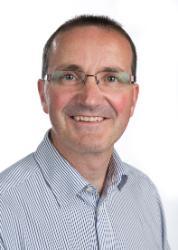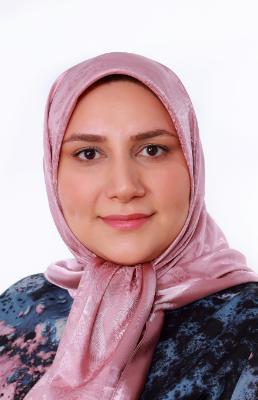Meet the Team
University College Cork (UCC), Ireland
| Prof. Marcel Jansen | Principal Investigator | m.jansen@ucc.ie |
|---|---|---|
| Dr. Merve Sasmaz Kislioglu | Postdoctoral Researcher | |
| Dr. Siobhan Higgins | Project Manager | siobhan.higgins@ucc.ie |
| Ms. Niamh Daly | Administrative Research Assistant | niamhdaly@ucc.ie |
| Ms. Eilish Kennedy | Research Assistant | eilishkennedy@ucc.ie |
| Dr. Paul Bolger | Academic Advisor | p.bolger@ucc.ie |
| Prof. Edmond Byrne | Academic Advisor | e.byrne@ucc.ie |
| Dr. Fatemeh Kavousi | Academic Advisor | fatemeh.kavousi@ucc.ie |
| Dr. Alan Morrison | Academic Advisor | a.morrison@ucc.ie |
Aberystwyth University (AU), Wales
| Dr. Dylan Gwynn-Jones | Co-Principal Investigator | dyj@aber.ac.uk |
|---|---|---|
| Ms. Lesley Langstaff | Local Project Manager | lkl1@aber.ac.uk |
| Dr. Gruffydd Lloyd-Jones | Postdoctoral Researcher | glj16@aber.ac.uk |
| Mr. Bob Jacques | Technician | rgj2@aber.ac.uk |
| Dr. Sarah Dalesman | Academic Advisor | sad31@aber.ac.uk |
| Dr. Paul Robson | Academic Advisor | ppr@aber.ac.uk |
| Dr. John Scullion | Academic Advisor | jos@aber.ac.uk |
Quick link to profile
Professor Marcel Jansen, UCC
Principal Investigator

Marcel grew up in The Netherlands, but settled with his family in North Cork in 2003, following jobs in the UK, Belgium, Germany, Israel and Switzerland. In The Netherlands, Marcel studied horticulture at the Agricultural University of Wageningen, since growing plants and gardening are some of his passions - as well as his strengths. At UCC, Marcel is involved in research and teaching on topics related to managing plant growth (see Marcel's Plant Stress Group, research profile and publications for more).
Over the last decade, Marcel has worked on the use of native Irish duckweed as a novel protein-rich feed crop that can be used to replace imported soya in Ireland. Marcel has developed expertise in growing duckweed on a variety of waste streams. Practical experience has been acquired in growing duckweed in stacked, indoor incubators using dairy processing wastewater. At the farm level, experience was acquired in growing duckweed on one hectare of outdoor flow-through channels, linked to a fish farm in County Offaly.
Marcel leads the Brainwaves project, which brings together scientists from Aberystwyth University and University College Cork. The team is keen to talk to industrial stakeholders and SMEs with expertise in hydroponics, sensors, light, agricultural feeds, and farming. If you would like to get involved in any of the Brainwaves project activities, please do contact Marcel informally on m.jansen@ucc.ie
Dr. Dylan Gwynn-Jones, AU
Co-Principal Investigator
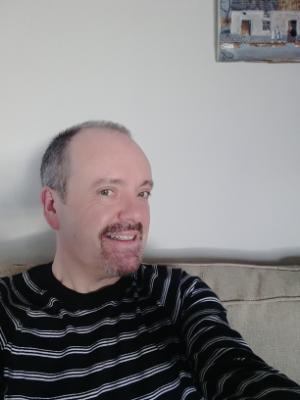
Dylan Gwynn-Jones was brought up in the Vale of Clwyd in a rural and bilingual farming community. He studied Biology at Bangor University and subsequently completed a Ph.D. at Bangor jointly with CEH Edinburgh. His interests have always focussed on plant ecophysiology, and in the 1990s he completed positions at the Universities of Manchester and Sheffield. Both looked at the effects of elevated CO2 and enhanced UV-B on high latitude plant communities. Dylan was subsequently appointed as a Lecturer, Senior Lecturer and then Reader in Ecology at Aberystwyth University.
Dylan's research interests in plant ecophysiology and environmental stressors have diversified and he now works closely with industry in the Horticulture, Agriculture and commercial sectors. His understanding of plant stressors spawned from his early work on environmental change have become more applied, and he now uses controlled stressors to improve crop yield and quality. He is an advocate of the need to better manage waste and embrace the circular economy, turning waste into resource and opportunity.
Dylan’s research profile can be viewed here, and he is contactable at: dyj@aber.ac.uk
Dr. Merve Sasmaz Kislioglu, UCC
Postdoctoral Researcher
E: msasmazkislioglu@ucc.ie

Merve is from Turkey. After graduating from Environmental Engineering, she studied heavy metal uptake levels of Lemna minor and Lemna gibba in her first MSc. In her second MSc, she investigated how flow patterns are affected by different pond configurations by using a CFD tool. She completed a PhD in 2021, which focused on heavy metal accumulation capacities of different macrophyte species growing in various discharge areas.
Merve’s publications can be found on her Research Gate profile.
If you would like to contact Merve about her research for the Brainwaves project, or her wider research interests, please do get in touch at: msasmazkislioglu@ucc.ie
Dr. Gruffydd Lloyd-Jones, AU
Postdoctoral Researcher
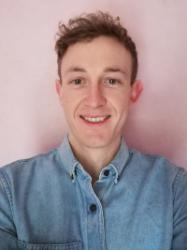
Originally from the Llyn Peninsula in north-west Wales, Gruff comes from a farming background. His family includes both beef and dairy farmers, giving him practical knowledge of the industry, and an understanding of the challenges it faces.
Gruff completed a PhD at Aberystwyth University, researching how the invasive shrub Rhododendron ponticum influences soil microbial communities and processes such as organic matter decomposition and nutrient cycling. After completing his PhD, he worked for the Snowdonia National Park Authority, liaising with landowners to eradicate invasive species on their land. His role in the Brainwaves project is as a research associate, involved in overseeing the development of outdoor and indoor duckweed growing systems.
Gruff’s publications can be viewed on his ResearchGate profile, and he can be contacted at the following email address: glj16@aber.ac.uk.
Mr. Bob Jacques, AU
Technician

Originally from the Forest of Dean, Bob has lived in rural Ceredigion for over 30 years.
For the past ten years he has been working with small scale composting businesses, developing and marketing peat free growing media based on vermicomposted animal manures and coir. Bob first came to Aberystwyth University in 2017 to research the ecology and horticultural use of vermicompost (MPhil thesis and journal article).
Since then, he has held a number of technician posts at the university relating to agricultural soils and growing systems. Bob has worked in environment and sustainability for most of his career, both in the private and third sectors, building on his academic grounding in natural resource assessment and development (MSc University of East Anglia) and zoology (University of Oxford).
Dr Siobhan Higgins, UCC
Project Manager
Siobhan grew up in County Kilkenny in Ireland and currently lives south of Cork city in the town of Carrigaline with her family. She has a PhD in Nutrition from University College Cork, after which she moved to Scotland to lecturer at Glasgow University for 8 years before taking a career break to raise a family. After moving back to Cork, she worked part-time in various research and research administration posts at University College Cork including in dissemination and project management on the EU-funded ODIN project. She has completed a Certificate in Project Management (CAPM) and is also currently studying for a Diploma in Climate and Sustainability. Siobhan enjoys gardening, walking, and playing tennis recreationally.
Her role in the Brainwaves project is as Project Manager. If you would like to get in contact with Siobhan in relation to any aspect of the project, please do contact Siobhan at siobhan.higgins@ucc.ie
Ms. Lesley Langstaff, AU
Local Project Manager
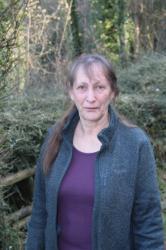
Lesley grew up in rural Oxfordshire and moved to West Wales 30 years ago, living just north of Aberystwyth with her family and a few chickens. Having originally trained as a Theatre nurse she decided to return to education and completed a BSc in Rural Resources Management in 1995. In the last year of her degree, she specialised in organic agriculture and conservation with a final dissertation combining the wonderful elements of slugs and slurry!
Since graduating Lesley has worked on a wide variety of projects both as a researcher and, in more recent years, in a project management capacity on ERDF-funded projects, and project administration on a Horizon 2020 project. Her role in Brainwaves is as the Local Project Manager for the Aberystwyth University team based in IBERS.
If you would like to get involved in any of the planned Brainwaves project outreach activities in Wales, please do contact Lesley on lkl1@aber.ac.uk
Ms. Eilish Kennedy, UCC
Research Assistant Technical
-187x250.jpg)
Eilish is a recent graduate of the School of Biological Earth and Environmental Sciences, UCC. She studied environmental science and took a particular interest in sustainable agriculture. Eilish is from Tipperary and has been living in Cork since 2018.
Eilish assists other members of the Brainwaves team with lab work, sample collection etc. She hopes to begin her own PhD in duckweed research in the coming months.
Ms. Niamh Daly, UCC
Administrative Research Assistant
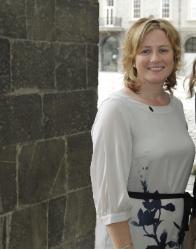
Niamh originally comes from West Cork and spent over 10 years working and travelling in Australia, but is now living in the western suburbs of Cork City with her family. Niamh’s grandparents were tillage farmers from Kilkenny, so she spent some of her childhood summers helping on the farm during the harvest.
Niamh has a postgraduate qualification in Archaeology and has worked on both research led and commercial excavation projects on a national and international level. In recent years Niamh has worked in academic administration in University College Cork. Her role in the Brainwaves project is part-time and is to oversee the financial reporting and management of the project's outreach activities.
If you would like to get involved in any of the planned Brainwaves project outreach activities or contact us in relation to us partaking in any outreach activities, please do contact Niamh on niamhdaly@ucc.ie.
Dr. Paul Bolger, UCC
Academic Advisor
Dr Paul Bolger is a Manager of the Environmental Research Institute at UCC. He has a PhD in Chemistry and a Masters in Business Administration and has worked across academia, industry and government for over 25 years developing long term research solutions for global sustainability challenges.
He is currently Principal Investigator on a number of research projects on climate change and the circular economy including Imagining2050 which is envisioning pathways for a zero carbon Ireland, and NEWTRIENTS which is exploring the valorisation of dairy industry wastewater.
Paul is interested in how inter- and trans-disciplinary approaches can be used to create more impactful outcomes for environmental and sustainability research. He teaches a module on Leadership for Sustainability as part of the HDip for Sustainability in Enterprise for at UCC. He is a US-Ireland Fulbright Scholar and a member of the Royal Irish Academy Climate Change and Environmental Sciences Committee.
Within the Brainwaves project, Dr Bolger is interested in how technologies for closing the loop on wastewater streams can be scaled and commercialised.
Professor Edmond Byrne, UCC
Academic Advisor
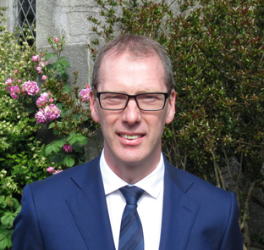
Edmond Byrne is Professor of Process & Chemical Engineering at University College Cork. A UCC Environmental Research Institute (ERI) PI, his research interests are centred on sustainability, on transdisciplinary approaches, and on appropriate contributions from engineering and engineering education. He has co-edited two books in this area (Transdisciplinary Perspectives on Transitions to Sustainability (Routledge 2017), and Metaphor, Sustainability, Transformation: Transdisciplinary Perspectives (Routledge, 2021)). He also has researched and teaches on fluid mechanics and on how fluid flow patterns impact on design of agri-food process equipment and systems, which has informed his contributions to Brainwaves.
See Ed’s full profile at: http://publish.ucc.ie/researchprofiles/D015/ebyrne
Dr. Fatemeh Kavousi, UCC
Academic Advisor
Fatemeh joined UCC’s Process and Chemical Engineering Department as the Eli Lilly lecturer in Biochemical/Biopharmaceutical Engineering in 2019. She obtained her BE and ME in Chemical Engineering from Iran University of Science and Technology (IUST) in 2007 and 2011, respectively. Starting during her undergraduate studies, Fatemeh fulfilled various roles in Polymer industries and research institutes for over 6 years. In 2012, she was awarded the IRC Embark Initiative PhD Scholarship which facilitated her PhD research on ‘Hydrodynamics and Mass Transfer Analysis of PDMS Hollow Fibre Membranes Modules’ in UCD under the supervision of Prof. Eoin Casey. Following the completion of her PhD, she took on the role of Assistant Professor in UCD’s School of Chemical & Bioprocess Engineering where she was responsible for undergraduate and postgraduate modules. Fatemeh’s main research interests are Fluid Dynamics and Membrane Separation Processes with a focus on Biochemical and Biopharmaceutical Processes.
See Fatemeh's full profile here.
Dr. Kavousi lends expertise to the Brainwaves project in the areas of biochemical engineering and fluid dynamics, and as co-supervisor on technical elements of the indoor system design.
Dr. Alan Morrison, UCC
Academic Advisor
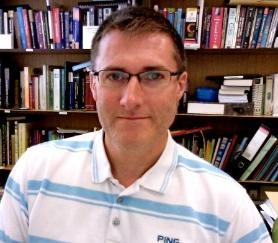
Alan graduated with first class honours in Electrical Engineering from UCC in 1992. He completed his PhD at the National Microelectronics Research Centre (NMRC) in Cork and Philips Research Laboratories in Eindhoven, graduating in 1997 with a thesis in the field of semiconductor lasers. He worked as a Research Scientist at the NMRC where he had responsibility for silicon photonics, particularly the development of single photon detectors and photovoltaic devices.
He joined UCC as an academic in 1998, was promoted to Senior Lecturer in 2006 and served two terms as Dean of Engineering from 2012-2018. He is currently Vice Dean for Undergraduate Affairs in the College of Science, Engineering and Food Science.
Alan's research interests include single photon detection, optical detectors, light emitting diodes, photovoltaics,circuit design and the application of optoelectronic technologies.
He is a Science Foundation of Ireland co-PI with Prof Marcel Jansen, where he is responsible for developing intelligent lighting incorporating ultraviolet (UV) sources to investigate the influence of various UV wavelengths on plant response and development. This work can potentially open up opportunities for improved crop production in indoor environments, thereby tackling global issues of food security and reducing CO2 emissions.
Over the last two decades he has won several PI awards from Enterprise Ireland and SFI. He has published extensively in top-tier Engineering journals and conference proceedings and enjoys collaborative and multidisciplinary research. He is particularly interested in developing engineering solutions that enable research in other disciplines.
In the Brainwaves project, Alan is contributing to the development of an automatic duckweed harvesting system, as well as providing general support in the area of LED lighting.
Dr. Sarah Dalesman, AU
Academic Advisor
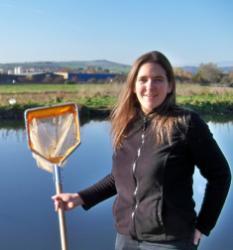
Sarah grew up in a rural community in North Yorkshire, but has spent time living in Scotland, Australia, Canada and most recently Devon before moving to Aberystwyth in Wales. Dr. Sarah Dalesman has a PhD in the behavioural ecology of aquatic snails. She joined the Institute of Biological, Environmental and Rural Sciences, Aberystwyth University in 2014 as a lecturer in freshwater biology. Sarah has 15 years of research experience working with freshwater species, specialising in population adaptation and responses to environmental stress. Previous work in agricultural systems has focussed on determining the impacts of management of freshwater habitats on agricultural land on population ecology and parasite transmission. Her current research work includes evaluating Lemna growth across environmental gradients. Websites:
https://www.researchgate.net/profile/Sarah_Dalesman
https://www.linkedin.com/in/sarah-dalesman-61bb3561/
https://www.aber.ac.uk/en/ibers/staff-profiles/listing/profile/sad31/
Her role is as part of the team at Aberystwyth University. Areas of interest in the project include inputs into outdoor system design to mitigate any threats and risks from invertebrate colonisation and assessment of how the system could mitigate against pollution effects and eutrophication of freshwater systems near farms.
Dr. Paul Robson, AU
Academic Advisor
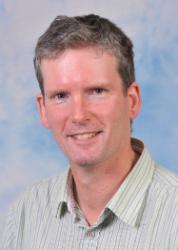
Paul is a plant biologist and has been working at Aberystwyth University for over 20 years. He has also worked at Warwick and Leicester Universities, where he developed his interest in photobiology and delivering sustainable impacts through plant biology. He has been involved in several projects collaborating with industry to develop plants for a range of uses from energy to chemicals to nutritious food. His current research focuses on developing biorenewable sources of biomass and controlled environment agriculture. Both these research areas come together in his role within the Brainwaves project where he is part of the team developing growth systems for Lemna and in developing the use of Lemna in farming and industry.
Dr. John Scullion, AU
Academic Advisor
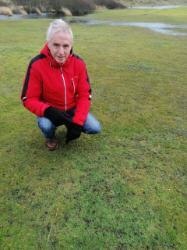
John is a native of Belfast but has lived now in Wales for some 40 years, firstly in Swansea, then for the last 30 years in Aberystwyth. He was project manager for a beef and sheep experimental farm established on restored mine land. The farm was run as a commercial enterprise with the aim of incorporating findings from research plots into a viable agricultural system that, in addition, promoted a sustainable soil rehabilitation process.
Dr John Scullion studied for a degree in Environmental Science at the Coleraine campus of Ulster University, then at Aberystwyth University for his PhD. John is a Reader in Soil Science in IBERS, Aberystwyth. He gained his PhD for research into the restoration of soils on former opencast mine sites and managed this British Coal funded project on an experimental beef and sheep farm in South Wales over a 10 year period. He has wide ranging research interests in soil science and soil management. Of particular relevance to the Brainwaves project is work on the use of sewage sludges in land restoration, the treatment of landfill leachates, and the use of anaerobic digestate in agriculture. He is currently a Deputy Editor for the European Journal of Soil Science. His role in the Brainwaves project is primarily in relation to the chemistry and treatment of agricultural wastes, as well as potential use of these resources in agriculture.
In addition to an active research profile, John teaches chemistry, soil science and pollution topics at all levels of undergraduate and on taught Masters schemes. John has more than 100 research publications covering a wide range of soil and pollution related topics. In addition to the Brainwaves project, current/recent research projects include FLEXIS (C sequestration in soils), PROSOIL (agricultural management of soils to promote their health), Climate Smart Grassland (mitigation of climate change impacts on soil-plant systems) and mapping soils on St Helena for planning and conservation purposes.

-167x198.PNG)
